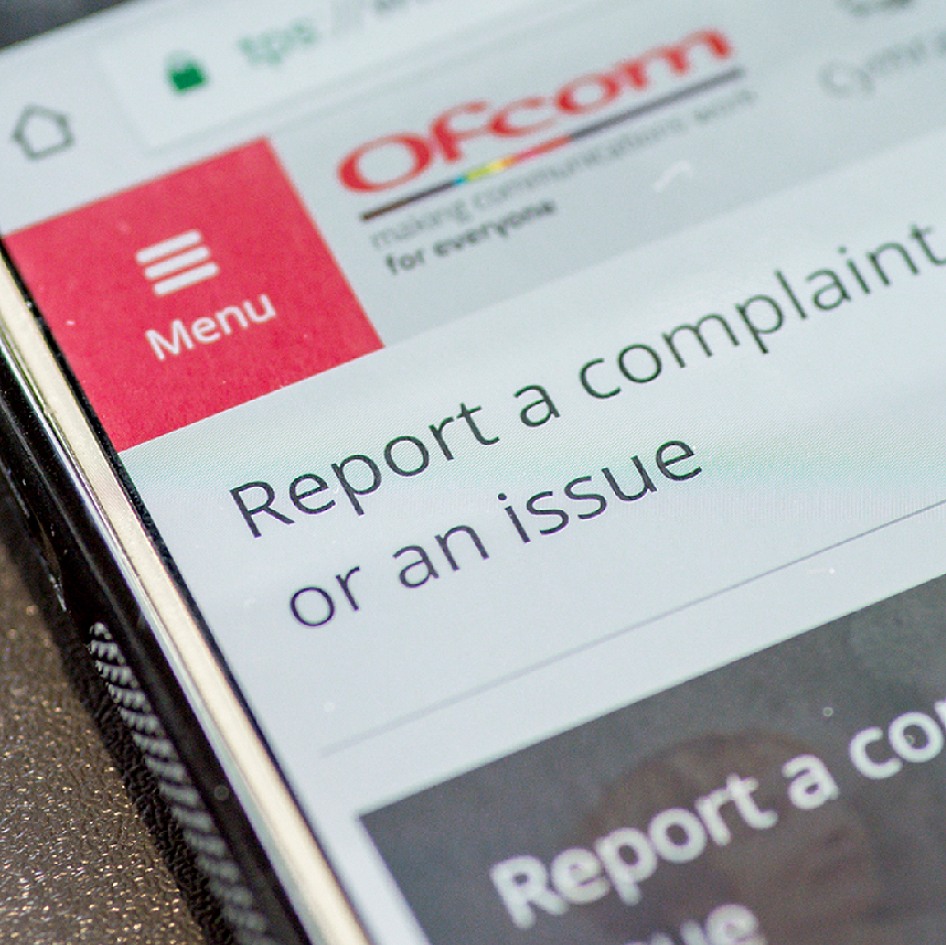The ISP industry only has itself to blame for its bad reputation – Guest Editorial
Now partly this is because every cellular radio tower needs supplying with high bandwidth fixed line connectivity, which is expensive. Obviously it’s about practical reasons such as geography, population density and land ownership.
But now you can’t move for reports that 5G is going to be the panacea. Ultra low latency, ultra high bandwidth. Where’s the catch? Oh yes – it can struggle to go through walls and cover long distances.
Unless there is a revolution in not only femtocell technology (where we end up with essentially millions of smaller cells instead of larger community towers), but also in the provision of high bandwidth, resilient connections to those cells, 5G will just be another failed promise.
Another example of hype coupled with a complete lack of realism.
Can we just blame the marketing and hype?
Part of me would love to just blame the marketing departments of the big ISPs (the smaller ones generally assuming they have to follow suit), but this is to over simplify the problem.
This issue runs far deeper than that. It includes journalists, analysts, regulators and elected officials.
You can’t blame an engineer for getting excited about a new technology and wanting to talk about it. But without learning from history (and a very recent history it is), we continue to fall into the same traps year after year. We damage our entire industry and foster mistrust from our customers.
What can the industry do to save itself?
The answers? I wish I had them all. Now that we’ve come this far it will probably take another decade to undo the harm caused by acting in this way, and that’s if every player made a concerted effort to change these practices. And we still have a national infrastructure organisation in Openreach that is still only invested in and controlled by BT. The newer fibre players have understandably focused on delivering their networks to those areas of the country most economically viable – high population densities.
The more of these the better, though. The more choice for consumers and providers competing for their business, the more those providers are forced by their customers to compete on quality and on price.
But what do we do instead? We declare “overbuild“. Why would we want more than one of these new fibre companies in this area? Isn’t that a waste of money?
But by encouraging or mandating that only one provider exist in an area, we end up in exactly the same problem as the rest of the country with a single Openreach infrastructure. All reseller ISPs that the consumer can choose from are all still beholden to a single company with a single physical network. It goes down, they all go down. It goes slow, they all go slow.
Am I just a doom monger? I hope not. let’s be clear – I want to see a free market solution to the problems of connectivity, and every time a new regulation comes along, it only enhances the position of large established players who can easily afford to comply (if anything it encourages the kind of consolidation and corporatism that politicians and the public hate), in turn creating more barriers to entry for newer, smaller companies looking to compete and therefore deliver better services to customers.
What the ISP industry needs most is realism, and to learn from history
I’m an engineer, so new technologies do excite me. But I’m also a realist.
With freedom comes responsibility and what I would like to see is more openness and a good dose of realism from everyone involved in the industry. Whether it’s being specific about being slow at peak times, or what bandwidth a connection in a given location should actually achieve, we all need to play our part in changing the perceptions of our industry in the eyes of consumers and those that govern.
We need to use English words in the way they were always intended rather than twisting their meanings, or caveating them in small print. Let’s end this Newspeak.
The new generation of products and services could help with this – but as with any new technology in the past 20 years, there is equally the danger that we repeat the same mistakes.
The new G.fast-based product from BT is up front about its guarantees, and in the compensation available to customers. Software is helping this, and more powerful CPE (customer premises equipment). Having clear, contractually defined means of testing connectivity is vital so that expectations are set, and quality is easy to prove or disprove.
Moves to encourage resilience are also welcome, helping improve connection up time and get customers through difficult, but inevitable faults. But in an age of mis-selling scandals, political uncertainty and the opportunity of increased global trade, the ISP industry needs to repair the damage it’s done.
All the software and good technological ideas in the world won’t be able to deal with, what appears to me to be, mainly a human problem. If we can open our eyes as an industry, ditch the group-think, be self-critical, learn from our recent history, and most importantly be honest and realistic, then we might just start being seen to be the solution to problems, rather than the cause.
— Nic Elliott, Chief Technology Officer, Evolving Networks.
Nic Elliott has been Chief Technology Officer of UK ISP Evolving Networks since its inception in 2008. A veteran of the IT and networking industry, Nic is responsible for the strategic technical focus of the business. Find me on Linkedin.
« Post Office Cuts UK Unlimited Broadband and Phone to £15.90
Ofcom UK Moves to End Abuse of Premium 070 Phone Numbers »
Latest UK ISP News
- FTTP (5513)
- BT (3514)
- Politics (2535)
- Openreach (2297)
- Business (2261)
- Building Digital UK (2243)
- FTTC (2043)
- Mobile Broadband (1972)
- Statistics (1788)
- 4G (1663)
- Virgin Media (1619)
- Ofcom Regulation (1460)
- Fibre Optic (1394)
- Wireless Internet (1389)
- FTTH (1381)
























































Is this an offer to publish peak hour planning rules? Including packet loss, jitter and delay budgets for each package sold?
Replace ‘superfast’ with throughput?
Replace ‘broadband services’ with data transport services?
No point in just complaining, what is the proposal?
We know this, what would he propose based on the technology?
@TheFacts: You posted the other day that you have some spare time on hand. Why not use it and come up with some proposals?
@GN – please refrain from trolling.
Well I am stunned!
Someone talking sense. No spin.
Well done.
Why can’t we have more of this.. THE TRUTH
Hear hear!
+1 particularly the point paragraph on “Full Fibre”.
I disagree. The full fibre debate is pointless.
Debating whether you should call it Fibre or FTTC doesn’t matter. One name doesn’t convey any more information than another. You might as well debate whether you should call it chalk or cheese.
The important thing is consistent names across the industry for different products, so customers can compare offerings from different providers. The full fibre debate only muddies that. Stick to calling it Ultrafast, FTTP or come up with a new and distinctive name while it’s still niche enough that most people haven’t heard of it.
Trying to claim the fibre name and rename the existing technology known as that to something else benefits nobody.
What a refreshing, honest article.
“And let’s be clear – Ofcom and the ASA have only made this problem worse.”
I agree, it’s a pity that there are no functioning regulators, we can see these misleading “fibre broadband” adverts everywhere these days.
“Openreach that is still only invested in and controlled by BT”
Openreach should have been made a fully independent company, and no taxpayer’s money should have been given to BT.
Gnewton don’t you have fibre broadband provided by a BDUK project ?
Openreach should have been made a fully independent company, and no taxpayer’s money should have been given to BT.
G Newton I think you mean the money that was provided as part of an full external procurement and involved significant match funding from the successful tenderer which BT was, — but hey lets not allow a few facts to cloud your highly biased view
@Fastman: I am not sure why you keep asking people what ISPs they use, with what technology. If you want to sell ISP or Internet services I suggest not to spam this forum here with this.
As regards match funding: We all know that the tendering process was initially highly biased towards BT, and most of the BDUK contracts went with that company, with taxpayer monies contributing to these gap-fundings for so-called commercially non-viable areas. You are welcome to dispute the published figures and can let us know if you get any responses from requests under the Freedom of Information act.
Other than the base ADSL all products including Full Fibre should state clear contractual FROM TO statements of ISP performance (speed, error, ping etc) for Down and UP (not line speed). Ofcom should also arrange for common testing standards and would be easier to apply if separate Modems/ONT were mandatory. For FTTC this may require a definition of a lower product for slower lines but at least a 38Mbps line will place some obligation on OR to address bad performance of some FTTC lines. In addition a Fibre line defined as 1Gig up line will actually deliver the contracted ISP Performance. Ofcom would need to ensure a service cannot simply be withdrawn or reduced without severe penalty.
A 1G line will not deliver 1G throughput.
Exactly and service dependant on backhaul ratios etc. That’s why the service from and to should be clearly stated regardless of underlying technology.
@TheFacts Surely the point of 1Gig service is that you no longer need to worry about how fast you can go, but ha that any devices you connect can do what they need to do without any service degradation (based on the router, home layout etc) After all you don’t worry about how much gas/water/electric you are getting, just that it works?
I cannot see any reason why a consumer user would need to utilise a full 960m (taking into account overheads etc) all the time? most devices would only need maybe 20Mb/s for UHDTV and unless you happen to have a HMO with hundreds of people stashed in the room most people would struggle to fully max out an FTTP line
It’s not just ISPs, it is also the public funded BDUK bodies and politicians giving soundbites that they think will make them look good.
I think a step change would be if the whole industry started treating the public like adults, able to comprehend information, not been kept in the dark, or given the wrong information to shut you up for a while.
As well there ever increasing contract length. Then the heafty cancellation charge, if you end the contract early.
As a result, being a renter, I got mobile broadband. As if I have to move, due to a gready land lord putting up the rent, I canove freely.
And let’s not forget in all the fibre vs “copper pairs” debate that some copper, erm, isn’t! Back in the Post Office/BT days when copper pairs became expensive, the way forward was seen as aluminium pairs – just about OK for telephone, but its higher resistance contributes to performance loss for data transmission.
I wonder how much aluminium line plant is still in use by BT?
The mealy mouthed answer from BT is that they have never installed alu cable.
ignoring all the contractors they encouraged to use it in the 80’s and early 90’s.
There are still whole estates of it around here.
I can’t believe BT is denying it. It was used early 70s until early 80s and depending on their vintage whole towns. We had jelly filled crimps especially as the aluminium was too brittle to bend, corroded easily and the twist in the pairs was bad. A lot has been recovered and replaced over the years but as you say certain areas are affected and basically it can crop up anywhere in the distribution side. If OR had good records these should be near the top of the list for FTTP.
Note also at this time new exchanges were not built so often lines for telephones got longer. All these conspire for low DSL performance. Currently there is no automatic incentive for OR to review badly performing lines with ISPs using the Upto excuse.
I know from BTOR engineers locally that Alu cables exist in my town.
Its hard to quantify but fwiw the amount of Alu has dropped a lot over time as cable is replaced for faults/damage etc. But if you have it they won’t change it just because your speed suffers.
We have aluminium here, our line is so bad for broadband I call it “badband”